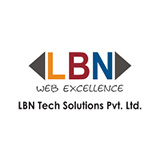What is Technical SEO
 In all these years LBN has been active in the local SEO industry, we’ve heard various versions of one question coming from new clients, almost every time:
In all these years LBN has been active in the local SEO industry, we’ve heard various versions of one question coming from new clients, almost every time:
“My website is not ranking in Google, and I can’t figure out why.”
Almost 3 times out of 10, the answer has been simply – “Because the website has not been indexed in Google”.
You read that right. We’ve served hundreds of local businesses, and one common SEO problem that plagued some of them was that their website was not in Google’s servers at all. Then how can a website hope to rank in Google?
This simple problem is the tip of the iceberg when it comes to technical SEO.
So, What is Technical SEO?
There’s no fancy answer to what Technical SEO is. The name is self-explanatory: It deals with the technical aspects of your website, and helps you optimize them for better SEO performance. It ensures that there are no technical roadblocks between your website and the good old Google traffic.
"Read Also: Optimizing SEO – A Business Lifeline in Pandemic Times"
How does Technical SEO Help My Website?
Google cares about only a few things related to your website really, as far as the technical side of things are considered.
Is it crawlable and indexable?
This is number one in our SEO checklist for all new clients who sign up with us, and we’ve seen websites that start getting SEO traffic in the very first month after we ensure that the website is properly crawled and indexed by Google.
It’s not just about putting a proper robots.txt file in place and checking your page headers, though.
- It involves optimizing your internal linking structure, so the search engines can understand which pages are the most important content in your website. It involves regularly checking for broken links and fixing them, so your users and search engine bots aren’t led to dead-end places.
- It involves properly canonicalizing those pages with duplicate content, so Google knows which variant to hold on to.
- It also involves keeping tabs on any crawl/indexing errors that might come up from time to time and fixing them promptly.
- And more.
Read Also: What is the Concept of Google Page Rank Algorithm
Is it mobile-first?
This used to be an added advantage some 5 years ago, but today it is one of the primary requirements for a website to be “mobile-first” in order to do well in Google SERPs. Much more so for local businesses, because a much bigger part of local searches are bound to happen in mobile devices than the regular searches are (which by themselves are mobile-dominated).
Google switched to mobile-first indexing two years ago, which means it crawls and indexes the mobile version of your website as a priority, so it has sent a strong signal towards why business websites have to be 100% mobile responsive. Google also puts emphasis on page load speed on mobile devices, so the other part of your mobile-first strategy should focus on improving speed, which brings us to the next point.
How fast do the pages load?
Google is so obsessive with page load speed that it has multiple tools for webmasters to test the speed which also provide detailed suggestions to improve the page performance.
Understanding how Google measures page load speed is worth an article by itself, but the common techniques to improve page performance includes using Content Delivery Networks, properly prioritizing CSS & JavaScript rendering, optimizing images, lazy-loading content and so much more.
How easy are the pages to understand (for Google’s bots)?
Semantics in search is something Google has been aggressively pursuing for the most part of its existence. Google, being a machine ultimately, tries hard to understand web pages as human users do, and it has various algorithms and techniques in place for doing so. But it also takes the help of webmasters, by the use of structured data.
There’s a whole suite of “rich snippets” that Google shows in most of its search results which are made possible by structured data mark-up (Knowledge Graph, “Top Stories”, “People Also Ask”,...). These rich snippets are almost always on the top spot in the SERPs, so the only way to get there is to mark-up your web pages with relevant structured data.
Knowing about Technical SEO is simple enough. The hard part is doing it. Well, that’s what we at LBN are there for, aren’t we?
- Jul 20, 2020






